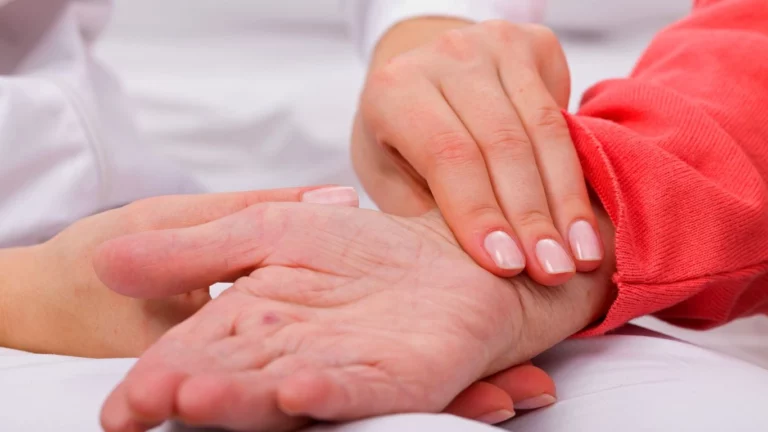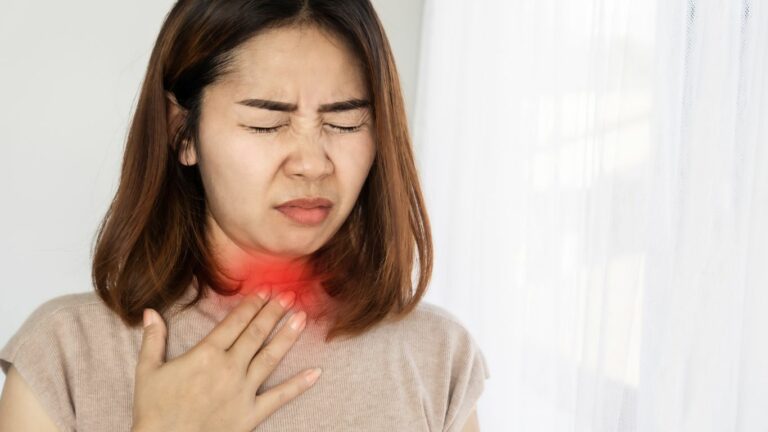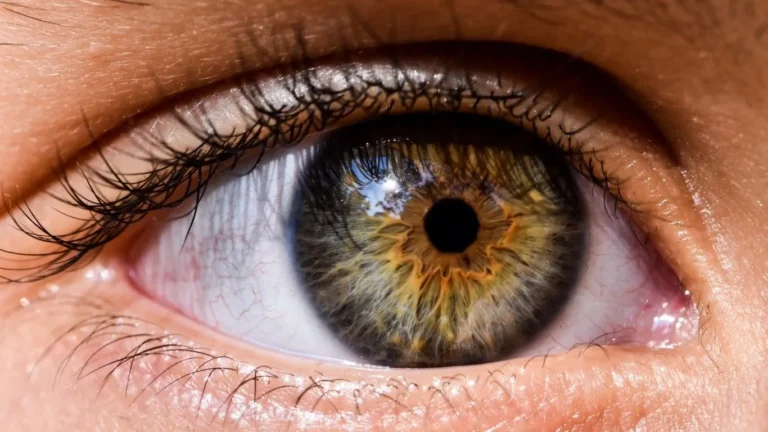Is Sparkling Water Safe for GERD? The Truth You Need to Know About Fizz and Acid Reflux
As someone who’s spent years studying GERD (Gastroesophageal Reflux Disease) and helping people manage their digestive health, I know that questions about what we can and can’t drink are among the top concerns. A common question that comes up is, “Is sparkling water safe for GERD?” If you’re like many others, you might be wondering whether that fizzy drink could worsen your symptoms or if it can be part of your daily hydration routine without causing harm. Well, let’s dive in and explore what the science and my experience have to say about this popular drink!
Understanding GERD and Its Triggers
Before we talk about sparkling water, let’s quickly review what GERD is and how it affects your digestive system. GERD is a chronic condition where stomach acid frequently flows back into the esophagus, causing irritation and discomfort. The most common symptoms include heartburn, regurgitation, chest pain, and difficulty swallowing. For those living with GERD, managing triggers—things like certain foods, beverages, and even lifestyle habits—is crucial in preventing flare-ups.
Many GERD sufferers already know that acidic, spicy, and fatty foods tend to make symptoms worse. But what about drinks? We all need fluids, but not all beverages are created equal when it comes to managing GERD.
Is Sparkling Water Safe for GERD?
Now, let’s get to the heart of the matter: Is sparkling water safe for GERD? The short answer is, it can be—depending on the person and their individual symptoms. But there’s more to it than just “yes” or “no,” so let’s break it down.
What Makes Sparkling Water Different?
Sparkling water, also known as carbonated water, is water that’s been infused with carbon dioxide gas under pressure. This process creates those little bubbles that give the drink its signature fizz. While it’s simply carbonated water with no added sugar or calories, it’s the carbonation that might raise concerns for those with GERD. The question is, does the fizz in sparkling water contribute to acid reflux symptoms or worsen GERD?
For some GERD sufferers, carbonated beverages—especially sodas—can trigger discomfort. The bubbles can cause bloating, increase pressure in the stomach, and potentially lead to acid reflux. However, sparkling water is often less of a concern compared to sodas because it doesn’t contain added acids or sugar, which can irritate the stomach lining and exacerbate GERD symptoms.
Personal Experience: How Sparkling Water Affects GERD
From my own experience, I’ve found that many of my GERD patients can tolerate sparkling water, especially when consumed in moderation. Of course, everyone’s body reacts differently, and it’s essential to listen to your own symptoms. I recommend paying close attention to how your body responds after consuming sparkling water. For some, a small glass of fizzy water with a meal can be refreshing without causing any problems. But for others, that same drink may lead to bloating, burping, or a mild flare-up of acid reflux.
Potential Benefits of Sparkling Water for GERD
While sparkling water can be a potential trigger for some people with GERD, there are also some benefits to incorporating it into your routine. Let’s take a closer look at the possible positive effects:
- Hydration: Staying hydrated is vital for managing GERD. Sparkling water is a great alternative to sugary sodas and caffeinated drinks, which can aggravate acid reflux.
- Digestion Aid: Some studies suggest that carbonated water might aid in digestion by improving gastric motility, which can help move food more efficiently through the stomach and intestines. For those with slower digestion or constipation, this could be a helpful option.
- Refreshing Option: If plain water bores you, sparkling water can be a fun, fizzy alternative that keeps you hydrated without the added sugars and artificial ingredients found in sodas.

Potential Downsides of Sparkling Water for GERD
Despite its benefits, sparkling water may not be suitable for everyone with GERD. Here are a few potential downsides to consider:
- Increased Gas and Bloating: For some individuals, carbonated drinks can cause bloating and excessive gas. This may lead to discomfort, especially if you already suffer from bloating as a GERD symptom.
- Pressure on the Stomach: The carbonation in sparkling water increases the volume of gas in the stomach, which can put pressure on the lower esophageal sphincter (LES)—the muscle that keeps stomach acid from flowing into the esophagus. This increased pressure may lead to acid reflux in some people.
- Potential for Acidic Flavors: While sparkling water is typically neutral in pH, flavored varieties may contain citric acid or other additives that could irritate the esophagus and worsen GERD symptoms. Always check the label for any added ingredients that could trigger your reflux.

How to Safely Enjoy Sparkling Water with GERD
If you’re eager to include sparkling water in your diet but are concerned about its potential to trigger GERD symptoms, here are a few tips that can help you enjoy it safely:
- Start Slow: If you’ve never tried sparkling water before or have been avoiding it, start with a small amount and monitor your symptoms. This will help you gauge your body’s tolerance.
- Choose Plain Sparkling Water: Stick with plain, unflavored sparkling water to avoid any added acids or artificial sweeteners that may irritate your digestive system.
- Avoid Drinking Large Quantities: While it might be tempting to drink a lot of sparkling water to stay hydrated, moderation is key. Drinking too much can increase stomach pressure and lead to discomfort.
- Pair It with Food: If you do experience discomfort, try drinking sparkling water alongside a meal rather than on an empty stomach. This can help reduce the chances of reflux and bloating.

What Types of Sparkling Water Should You Avoid with GERD?
Now that we’ve covered the basics of whether sparkling water is safe for GERD, let’s dive into a more specific area: which types of sparkling water might not be the best choice if you’re managing acid reflux? Not all sparkling waters are created equal, and some can aggravate GERD symptoms more than others. The key here is in the ingredients, flavors, and even the amount of carbonation.
Avoid Flavored Sparkling Waters with Citric Acid
Many sparkling waters come with added flavors to make them more exciting, but these can be problematic for GERD sufferers. While natural fruit-flavored sparkling waters might seem like a good idea, some of them contain citric acid, which is highly acidic. Citric acid can trigger acid reflux by lowering the pH of the drink, making it more likely to irritate your stomach and esophagus.
I’ve seen a lot of patients excited about the fruity options on the shelves, but I always remind them that just because a drink says “natural” or “no added sugars,” it doesn’t mean it’s GERD-friendly. My advice is to stick to plain sparkling water or check the ingredients list carefully if you want to try a flavored one. If you spot any citric acid, it’s probably best to steer clear.
Carbonated Beverages with Added Sugar
If you’re thinking about grabbing a sparkling water that’s sweetened with sugar or artificial sweeteners, think again. While sugar might not directly trigger GERD in all cases, consuming sugary drinks (even in small amounts) can lead to weight gain, which puts extra pressure on the stomach. This increased pressure may then cause acid reflux symptoms. Plus, artificial sweeteners like aspartame or sucralose can sometimes upset your digestive system in other ways, leading to bloating or gas.
From my personal experience working with GERD patients, I always recommend avoiding sugary sodas and sweetened sparkling waters altogether. Instead, opt for natural, unsweetened sparkling water to keep your digestive system happy and your reflux symptoms at bay.

When Is Sparkling Water Actually Helpful for GERD?
We’ve been talking a lot about the potential downsides of sparkling water, but is there a time when it could actually be helpful? Absolutely! In fact, there are a few specific scenarios where sparkling water might help with GERD symptoms or digestion, rather than aggravating them.
Hydration Without the Heartburn
First and foremost, staying hydrated is crucial for managing GERD. Water is essential for digestion and for diluting stomach acid. But for those who struggle with plain water, sparkling water can be an excellent alternative. As long as it’s not too bubbly, and you’re not consuming it in excess, sparkling water can help you meet your daily hydration needs while providing a little extra fizz. This might even make it easier to stay on top of your water intake, especially if you’re not a fan of flat water.
One of the things I’ve noticed when working with patients is that many of them enjoy sparkling water as a refreshing, less boring option. It’s a fun way to mix things up without turning to sugary sodas or other acidic beverages that might worsen GERD symptoms. Personally, I find that the fizz can give people a psychological boost, making hydration feel like less of a chore.
Relief from Bloating and Digestive Discomfort
Another benefit of sparkling water, especially for some GERD sufferers, is that it may help with digestion. The bubbles in sparkling water can help relieve bloating by promoting burping, which might reduce the feeling of fullness and pressure that often comes with GERD. In fact, some studies have suggested that carbonated water can improve gastric motility and help move food through the stomach more efficiently. If you’re prone to indigestion or bloating after meals, a small glass of sparkling water could actually help your stomach settle down.
However, be cautious about drinking too much sparkling water if you already suffer from bloating as a GERD symptom. The excessive gas from carbonation can cause discomfort in some people, so it’s all about moderation and paying attention to how your body reacts.

How to Make Sparkling Water More GERD-Friendly
If you’re determined to include sparkling water in your routine but want to make it as GERD-friendly as possible, there are a few simple adjustments you can make. These tips will help reduce the risk of triggering acid reflux while still enjoying that satisfying fizz.
Control the Amount of Carbonation
Some people are more sensitive to the level of carbonation in drinks, and too much fizz can lead to bloating and discomfort. If you notice that your stomach feels overly full after a glass of sparkling water, try switching to a less-carbonated variety. There are plenty of options out there with varying levels of bubbles, so experiment with what works best for you.
When I talk to my patients about this, I remind them that you don’t need to go overboard with the fizz. A gentle sparkle is enough to make the drink enjoyable without overwhelming your digestive system. If you’re not sure what’s right for you, start with lightly carbonated water and gradually increase the carbonation level if it feels comfortable.
Combine with a Little Bit of Lemon or Herbal Tea
If you miss the flavor of fruit in your sparkling water but want to avoid the potential risks of citric acid, try adding a small splash of fresh lemon juice or even some herbal tea. Lemon is a tricky one, though—while it’s acidic, the small amount added to sparkling water may actually help balance stomach acid and aid digestion. Herbal teas like chamomile or ginger are another great option to add flavor without aggravating GERD symptoms.
Don’t Drink on an Empty Stomach
Another simple rule of thumb when drinking sparkling water is to avoid it on an empty stomach. Drinking carbonated water on an empty stomach can sometimes lead to an increase in acid production, potentially triggering reflux. Pair your sparkling water with a meal or snack to help buffer the acid levels and prevent irritation.

Case Studies & Real-Life Examples
In my years of working with GERD patients, I’ve seen all sorts of reactions to sparkling water. While some individuals have found it to be a refreshing, almost therapeutic drink, others have had their symptoms worsen from the fizz. Let me share a couple of real-life examples to illustrate just how varied the experience with sparkling water can be for GERD sufferers.
Case Study 1: Sarah’s Experience with Sparkling Water
Take Sarah, for instance. She’s a 35-year-old professional who works long hours and relies on coffee to keep her going. Unfortunately, coffee is a big no-no for GERD, and Sarah had been struggling with frequent heartburn and regurgitation. After making several changes to her diet, we decided to experiment with sparkling water as a potential replacement for her afternoon soda habit. Initially, Sarah was nervous because she had always assumed that anything carbonated would cause problems.
However, after a few weeks of drinking a small amount of plain sparkling water with her lunch, Sarah noticed that her hydration levels improved, and her GERD symptoms started to stabilize. She felt a little less bloated, and her digestion seemed smoother. It wasn’t a miracle cure, but it was a nice, refreshing option for someone trying to stay away from sugary drinks. Sarah now enjoys her occasional sparkling water and has learned to listen to her body, knowing that moderation is key.
Case Study 2: John’s Struggles with Carbonation
On the other hand, we have John, a 50-year-old man who had been living with GERD for years. John was initially excited about the idea of adding sparkling water to his daily routine. After all, it was a zero-calorie alternative to sodas and seemed like a much healthier choice. However, after just a few days of drinking sparkling water, he found that his symptoms worsened. He experienced increased bloating, a rise in heartburn, and even some chest discomfort.
Upon reflection, John realized that the increased pressure in his stomach from the carbonation was exacerbating his acid reflux. After a conversation about his diet and habits, we decided that sparkling water wasn’t the best option for him, and we focused on other hydration methods. It wasn’t the outcome he expected, but John felt much better once he stopped drinking carbonated beverages altogether.
These two case studies show how personal and individualized GERD management can be. While sparkling water may work for some, it might not be the right choice for others. It’s essential to take a trial-and-error approach, always listening to your body’s feedback and adjusting accordingly.
Key Takeaways: What You Need to Remember
By now, you have a better idea of whether sparkling water can be part of your GERD management plan. Here are some key takeaways to remember:
- Moderation is Key: Sparkling water can be safe for GERD if consumed in moderation. It’s important to monitor how your body reacts to it.
- Plain Over Flavored: Always opt for plain, unflavored sparkling water. Flavored varieties may contain citric acid or other additives that can trigger reflux symptoms.
- Carbonation Matters: If you’re sensitive to carbonation, go for a lightly carbonated option or stick with flat water.
- Pair It with Food: To minimize the risk of triggering reflux, drink sparkling water with food rather than on an empty stomach.
- Know Your Body: Everyone’s experience with GERD is different. Keep track of what works for you and what doesn’t.

FAQs
Let’s take a moment to answer some of the most common questions I get asked about sparkling water and GERD:
Can sparkling water help with digestion?
For some people, yes! The carbonation in sparkling water may aid in digestion by promoting burping, which can reduce bloating and pressure in the stomach. However, it’s not a one-size-fits-all solution, so be sure to monitor your symptoms.
Does sparkling water cause bloating?
It can, especially if you’re sensitive to carbonation. The gas in sparkling water can lead to bloating and discomfort in some individuals, particularly those with GERD. It’s essential to find a carbonation level that works for your digestive system.
Can I drink sparkling water every day with GERD?
If you don’t experience any discomfort or worsening of symptoms, then yes, sparkling water can be part of your daily routine. Just make sure you’re not overdoing it, and always listen to how your body responds.
What are some good alternatives to sparkling water if it triggers my GERD?
If sparkling water isn’t working for you, don’t worry. There are plenty of other ways to stay hydrated without triggering acid reflux. Try herbal teas like chamomile or ginger, or simply stick with plain water. Coconut water is also a good option for some GERD sufferers.
Bonus: Additional Resources or DIY Tips
If you’re looking for more ways to manage GERD, here are a few additional tips that might help:
- Try Ginger Tea: Ginger has natural anti-inflammatory properties and can help soothe the digestive system. A warm cup of ginger tea before meals might help reduce the risk of acid reflux.
- Mind Your Posture: Avoid lying down right after eating. This can increase the likelihood of acid reflux. Try to stay upright for at least 30 minutes after a meal to give your digestive system time to work.
- Eat Smaller, More Frequent Meals: Large meals can put extra pressure on your stomach, increasing the chances of reflux. Try eating smaller meals throughout the day to reduce the strain on your digestive system.
Appendix: Table, References, Disclaimer, and Call to Action
References:
Disclaimer: The content shared in this article is intended for informational purposes only. It should not replace medical advice. Always consult with your healthcare provider before making any changes to your diet or lifestyle.
If you found this article helpful, don’t hesitate to share it with others who might benefit from it. And if you have more questions or need personalized advice, feel free to reach out to me. I’m here to help guide you through your GERD management journey!

Camellia Wulansari is a dedicated Medical Assistant at a local clinic and a passionate health writer at Healthusias.com. With years of hands-on experience in patient care and a deep interest in preventive medicine, she bridges the gap between clinical knowledge and accessible health information. Camellia specializes in writing about digestive health, chronic conditions like GERD and hypertension, respiratory issues, and autoimmune diseases, aiming to empower readers with practical, easy-to-understand insights. When she’s not assisting patients or writing, you’ll find her enjoying quiet mornings with coffee and a medical journal in hand—or jamming to her favorite metal band, Lamb of God.







